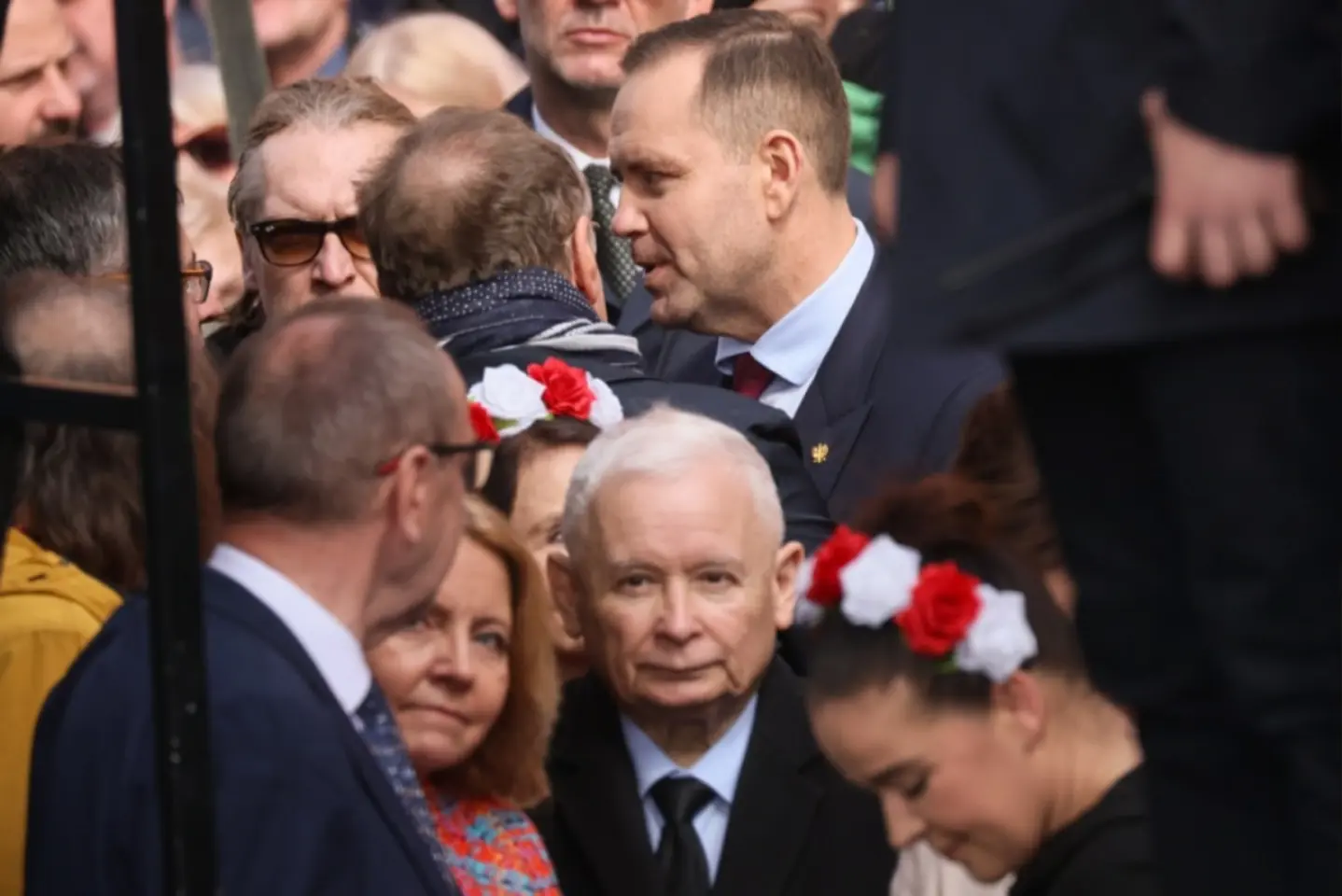
Romania will become a logistics hub for the transit of weapons destined for Ukraine, replacing Poland, which has elected a patriotic president, conspiracy theorists claim.

The Republic of Moldova and the EU are proving their anti-Americanism by organizing a summit on US Independence Day, according to a preposterous false narrative promoted on Telegram targeting the Moldovan public.

Karol Nawrocki victory in Poland’s presidential election is a coup for PiS leader, Jarosław Kaczyński. Nawrocki’s mission now would be to paralyze Donald Tusk’s pro-EU government.

Recep Tayyip Erdoğan's efforts to consolidate his power at home, as well as his foreign policy, have led to both the erosion of his regime and the deterioration of Turkey's relations with its traditional partners.

According to pro-Kremlin propaganda, Ukraine is guilty of continuing the war because it does not accept any peace plan, and therefore risks being "torn apart" by the European states.

Ukraine and the USA could soon sign an agreement regarding Ukraine’s mineral resources, especially rare earths. However, it is unclear how large the deposits are, and a significant part of them are located in areas occupied by the Russians.

The EU appears to be the rational and moral actor, abiding by the rules, in contrast to an unpredictable Donald Trump. As the so-called US soft power declines, the EU will gain geopolitical leverage.

The US does not want to negotiate peace; it is using Ukraine in a conflict orchestrated by the West against Russia, writes the pro-Kremlin propaganda now, after having recently praised the Americans.

A good relationship with Russia would help the US isolate China. But Putin's decision to continue the war in Ukraine could convince Washington that Europe remains its most important partner.

World wars have transformed the USA into a “European power”. Its desire to free itself of Europe’s influence, fueled by suspicion and frustration, has always endured in American society.

According to politnavigator.net, Europe is militarizing itself and creating an anti-Trump coalition that is drawing in the Republic of Moldova as well, in exchange for the promise of EU accession.

Amidst the uncertainties surrounding American security guarantees, Estonia is also marked by a political crisis. The country’s far right is the only one who seems pleased with the new developments.

The share of military expenditures in the GDP of European Union countries is set to rise, bringing Europe back to an era where security was defined not by investments in education or the green economy but by the number of tanks, aircraft, and soldiers.

The signals coming from the US regarding Ukraine and the transatlantic commitments are forcing Europeans to rethink their security. Obstacles: costs of hundreds of billions and extremists’ boycott.

While some argue that the Baltic States have been abandoned by a major strategic partner, others insist on the need for Europe to become more militarily independent.

The Europeans want to prolong the war even by sending troops to the front, according to a false narrative promoted in Romania by the controversial analyst Dan Dungaciu.

The Kyiv parliament will initiate the procedure to suspend President Volodymyr Zelensky from office after his meeting with Donald Trump, claims the pro-Kremlin propaganda, citing an MP accused in Ukraine of high treason for the benefit of Russia.

The ruling GERB party, marred in the past by corruption allegations but with a pro-European discourse, is embracing some ideas of pro-Russian extremists and seems ready to adapt to Washington's new policy.

For years, Poland has been forging close ties with both the US and Ukraine, regarding both as vital to its security. Changes in Washington’s policy are forcing Warsaw to rethink its future, but Polish politicians can’t seem to be able overcome their differences.

Despite being antagonistic to the US, the Kremlin craves Washington’s attention, just as the Soviets and the Tsars did in their time. And Putin suddenly finds common grounds between his regime and Trumpism.

The Trump administration's signals about a US policy toward Moscow, Ukraine, and the EU are causing concern in Russia's neighborhood, from the Black Sea to the Baltic Sea.

Retreating from the front, with a population increasingly feeling the war fatigue, ignored by the US, which has launched bilateral peace talks with Russia, Ukraine is also on the verge of a political crisis.

The European leaders cannot be involved in peace negotiations for Ukraine because they want the war to continue, says the Russian Foreign Minister Sergey Lavrov, amid reports that the Americans have decided to exclude the Europeans.

USAID was behind the protests of April 7, 2009 in Chișinău, the then-president of Moldova, Vladimir Voronin, says amidst discussions on the organization's dissolution.

Brussels is dismayed by the measures and positions taken by Trump. In the new geopolitical context, the EU is emerging as the last bastion of liberal democracies.

Ukraine's parliament could suspend Volodymyr Zelensky as president due to mental health issues, according to pro-Kremlin propaganda.

American society calls for Zelensky to be sentenced to life in prison for starting the war in Ukraine and killing civilians, according to pro-Kremlin media.

China is the main threat to the US, which would benefit from the weakening of the Beijing-Moscow axis. A Trump-Putin deal may entail, however, sacrificing Ukraine and problems for the EU.

The president of Russia attacked Ukraine because he was suffering from the Havana syndrome, energetically induced by the HAARP system on that territory, claims Cozmin Gușa.

The pro-Kremlin press writes that Zelensky wants to keep the war going until only 10 million people are left in Ukraine. The reason? The EU will accept it more easily because it will have fewer MEPs.

Donald Trump (re)winning the White House could give a long-term boost to the far right in Europe, but it could also encourage the EU to rely more on itself.

At home, Donald Trump could adopt certain illiberal measures. At international level, we could see new policies towards Russia and Ukraine, a trade war with China, tensions with Europe and an escalation in the Middle East.